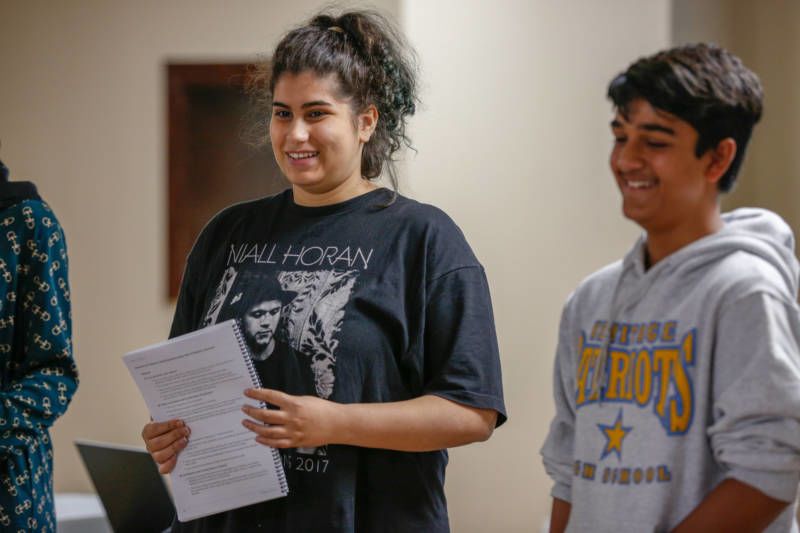
As Islamophobia has risen in the U.S., data indicates that Muslim children and teens experience bullying and harassment at a higher rate than other students. 53% of Muslim school-aged children in California say they have been “made fun of, verbally insulted or abused” and nationally, 42% of Muslim children have reported being bullied (according to the Council on American-Islamic Relations and the Institute for Social Policy and Understanding, respectively).
Three years ago, the Islamic Networks Group (ING) launched a program to help Muslim youths handle harassment while also educating peers about their faith. During a recent session in San Jose, students brainstormed on how to best respond to demeaning scenarios such as being called a terrorist. Sara Shohoud, 18, offered her take. “A really interesting response would be to ask, ‘What makes you say that?’ So they kind of have to admit that they are being Islamophobic, and nobody really wants to do that.” Ishaq Pathan, the group’s Bay Area director who lead the training, concurred and said if students start a conversation to counter hurtful language, it helps create a better environment for everyone. “None of this works if we just turn around and make fun of other people,” explains Mr. Pathan. “It’s only going to work if we all reduce this thing together.”
As part of the training, students also practice presenting the history of Muslims in America and sharing about their faith in the hopes of educating non-Muslim kids who may be ignorant (and thus afraid) which could lead to bullying. “Using all these components to stem discrimination and empower students is what makes the program unique,” says Dr. Nadia Ansary, an associate professor at Rider University in New Jersey who studies discrimination of Muslim youth.
A new initiative geared to Jewish and Sikh students is also in the works from ING as these groups also face high rates of bullying.



